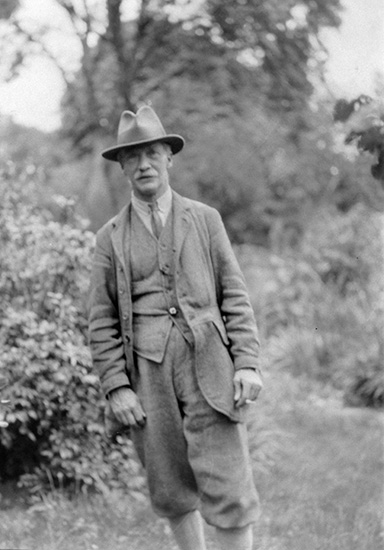When the war ended, Vaughan returned for a short time to his position as Commandant of the Cavalry School at Netheravon. He was given command of the 1st Cavalry Brigade in 1919, but retired from the army a year later and returned to Wales to manage the family estate, Nannau. He was a close friend of the Royal Family, and the Queen and the Duke of Edinburgh are said to have spent time at his home when they visited North Wales.
In 1921, Field Marshal the 1st Earl Haig became a founding member of the Royal British Legion, a charity aiming to provide support to members and veterans of the British Armed Forces and their families. Vaughan, a close friend of Earl Haig, became much involved in the charity and, in 1932, was appointed President of the Welsh British Legion. In that capacity, he took a trip to Germany with the Swansea Branch in 1936. Here, the group conversed with Himmler, ‘quite the most revolting and shifty-looking man I have ever seen’, and witnessed a large military parade in Cassel on grounds decorated with numerous large swastikas. It is little surprise that when the Second World War broke out in September 1939, Vaughan, then aged 67, swiftly returned to uniform and was appointed to the command of the Merioneth and Montgomeryshire Home Guard.
In 1955, John Vaughan published his memoirs, Cavalry and Sporting Memoirs, in which he condemned in harsh terms David Lloyd George’s leadership during the First World War.
Vaughan’s enthusiasm for horse sports knew no bounds, and when well into his fifties he won the Open Army point-to-points three times. He also remained a keen follower of polo and was appointed manager of the famous Ranelagh Club of London. For a time in the 1920s, he had as his assistant George Valentine Scott Douglas, second husband of Pat Armstrong’s one-time paramour Blanchie Somerset. Horses also brought about Vaughan’s demise. In early 1956, when he was 84 years old, he went for a ride but lost a stirrup and fell to the ground. He was taken back to the house shaken and bleeding, and died a week later on 21 January. He did so without regrets. ‘I have much to be thankful for in a long life’, he had noted in his memoirs the year before, ‘good regiments, good friends, good luck, good sport, good horses and a good wife and home.’

